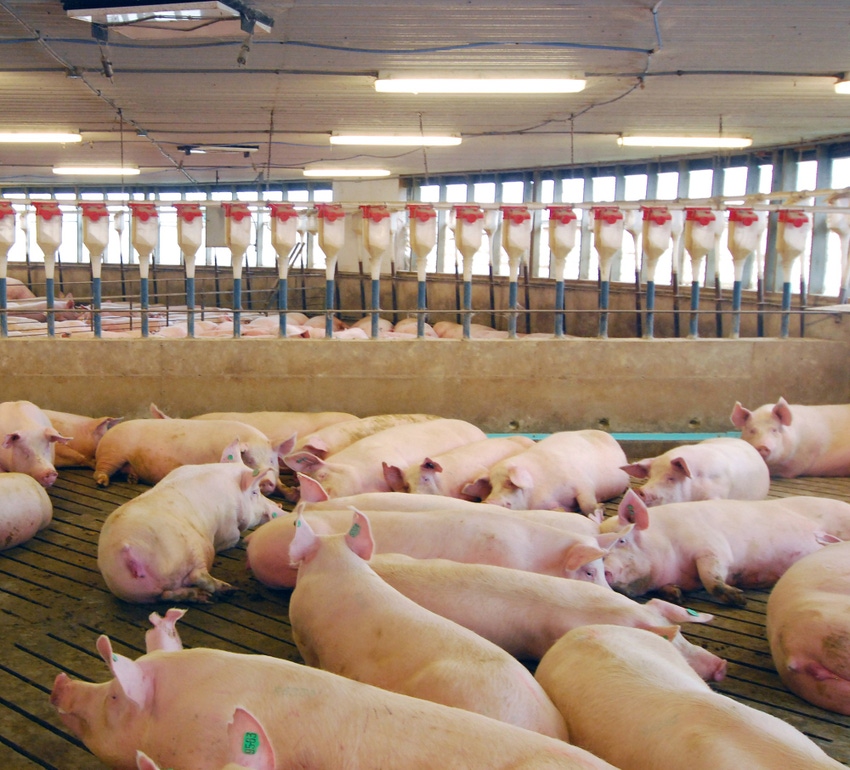
Smithfield Foods was one of the first major pork retailers to promise a phase out of gestation crates for its sow herd. However, the Humane Society of the United States says Smithfield Food’s actions fall short in their promise for eliminating the sow confinements.
A lawsuit filed Oct. 18 specifically alleges unlawful trade practices and targets their marketing and sales in the District of Columbia of falsely and misleading advertised pork products in violation of the Consumer Protection Procedures Act in D.C. HSUS claims Smithfield’s misleading jargon and hidden caveats “mislead humane-conscious consumers and commercial buyers into purchasing pork” and “increase consumer and corporate confusion over confinement practices on pig farms,” the suit notes.
“Smithfield Foods widely celebrates that it has eliminated gestation crates and transitioned all of its mother pigs on company-owned farms to group housing—a move it said was motivated by consumer demands. But in reality, the company’s ‘group housing’ keeps pigs locked in gestation crates for a significant part of their lives,” says Kitty Block, HSUS president and CEO.
Jim Monroe, Smithfield vice president of corporate affairs, says Smithfield is steadfastly committed to the safety, health and comfort of its animals. “We disagree with HSUS’ claims,” Monroe says.
He adds contrary to HSUS allegations, Smithfield has been transparent with the public about its implementation of group housing. “As clearly reported in our 2020 Sustainability Impact Report, among many other public communications, we provide group housing for pregnant sows during their 16-week gestation period on our company-owned farms globally,” Monroe states.
At Smithfield Foods, its U.S. operations use three types of housing arrangements for pregnant pigs: individual stalls, free-access group pens and small group pens. According to its 2020 sustainability report, Smithfield reports all pregnant female pigs on company-owned farms, including those in Poland, Romania and its joint ventures in Mexico, are housed in groups.
Individual stalls are used for breeding to help ensure a sow’s successful conception, a practice supported by multiple scientific studies. They also use individual stalls during farrowing to protect a sow’s growing litter. Monroe adds that for successful breeding, sows are in individual stalls for 35-40 days.
The report also notes Smithfield is supporting contract growers through the conversion process by providing guidance and expertise when requested and have seen an increase in the number of farms that have converted or that have expressed interest in converting. Monroe reports that as of the end of 2020, approximately one-third of its contract growers had converted to group housing.
“We believe a collaborative approach with contract growers provides the best likelihood of a successful transition to group housing for pregnant sows in these locations,” the report adds.
As the lawsuit filed by the Humane Society of the United States makes clear, Smithfield Foods’ so-called “group housing” system is actually just a cycle of crate confinement: it immobilizes pigs for up to six weeks at a time in gestation crates, only then moves them into group pens for as little as nine weeks, then moves them into farrowing crates for four weeks, and back into gestation crates. “This cycle repeats for their whole lives—amounting to a small reduction but not elimination of gestation crate confinement as Smithfield Foods claims,” HSUS claims.
Ten states have passed laws to restrict or ban the practice, and California and Massachusetts have even banned the sale of pork coming from gestation crate operations. In addition, major restaurant, retail and foodservice companies have adopted their own policies to eliminate gestation crates from their supply chains, citing customer concern.
About the Author(s)
You May Also Like






